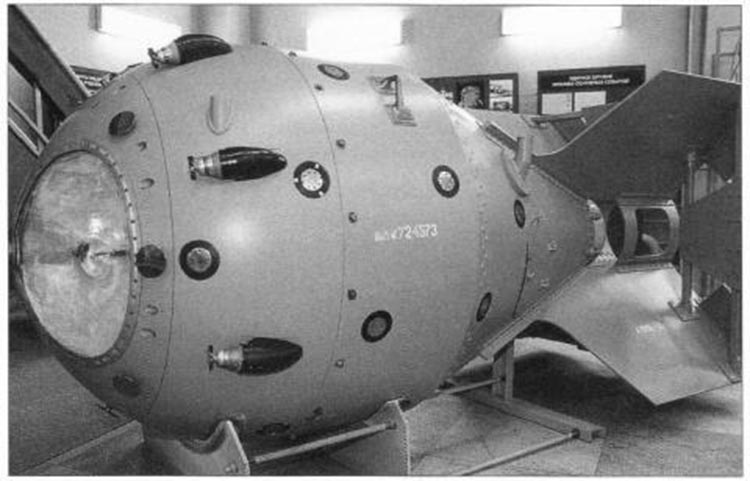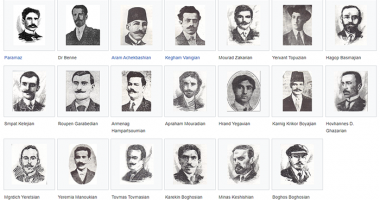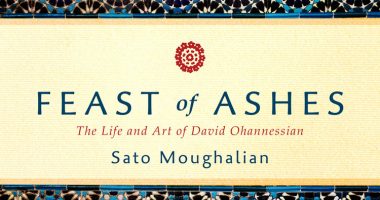By Hambersom Aghbashian
Ayşe Önal (born in 1955) is a Turkish journalist and writer. A former editor in chief of Nokta. She worked as a psychological counselor at a juvenile prison in the early 1980s, but was fired for her leftist ideas. In 1984 she joined the weekly Nokta as a political reporter, and became its editor-in-chief. Önal was one of the first people to write about JİTEM*, for Dinç Bilgin’s Ateş newspaper on 2 July 1994. She had learned about it from Veli Küçük after being introduced to him through MIT** spy and fellow journalist, Tuncay Güney. In 1994 Turkish Hizballah published a death threat against her, leading Önal to go into hiding in Cyprus for three months. She moved to London in 2000 and became foreign correspondent for Kanal 7, before moving to Akşam and Show TV in 2003. Her best known book is (Honor Killing: Stories of Men Who Killed) which was published in Turkish and translated to other languages (2004 Turkish, 2008 English, 2013 Japanese). From 1995 to 1997 she hosted a discussion show Minefield on Kanal 7, which brought together Jews, Armenians and Turks five days a week in a way not previously seen on Turkish television. The International Women’s Media Foundation, which gave her a “Courage in Journalism” Award in 1996, said of her in 2008: “Önal has been a controversial journalist most of her life. She was on the hit list of both the revolutionary left and the Islamic radicals. Her early kudos came from reports on prison abuse of children, but she went on to cover the first Gulf War, the war in Bosnia and the evolving political situation of the Kurds. She rattled the Turkish government by many reports about corruption and in the mid-1990s officials put her on a black list, which effectively barred her from employment in any media controlled by the government. That “embargo” against her was lifted right before she got the Courage Award but she was still seen as almost unemployable.”
According to Reporters Without Boarders organization, July 3, 2007, The trial of Hrant Dink’s murderers was of historic importance. The press freedom organization said “This trial is of historic importance. It is now up to Turkey, which aspires to join the European Union, to reject violence and to choose to respect the rule of law.” Reporters Without Borders, the International Pen Club and the Association of Turkish Journalists asked to be granted civil party status in the trial but they were not given permission to attend the hearings. Only the Dink family, their lawyers and the representatives of Agos and Birgün, the two newspapers Dink worked for, were allowed to remain in the courtroom. Ayşe Önal, as “Association of Turkish Journalists” representative was leaving the courtroom along with all the others who had to leave, she shouted: “We are the ones who are being murdered, we are Hrant Dink.” The judge replied: “I know, I am truly sorry, but it is the law.” (1)
Amnesty International UK, in association with the Armenian Institute, English PEN and Index on Censorship organized a special event on February 28, 2008, to commemorate with a tribute to Hrant Dink and his work. The event was under the motto “For Hrant, For Justice and The ongoing struggle for freedom of expression in Turkey”: People were invited to participate in the event and see the premier screening of a 50-minute documentary by Nouritza Matossian of in-depth interviews with Hrant Dink, followed by a panel discussion with Matossian, writer and broadcaster Ayşe Önal and Andrew Gardner, Amnesty International Turkey Researcher.(2)
In December 2008, two hundred prominent Turkish intellectuals released an apology for the “great catastrophe of 1915”. This was a clear reference to the Armenian Genocide, a term still too sensitive to use so openly. The signatories also announced a website related to this apology, and called on others to visit the site and sign the apology as well. This is the brief text of the apology: “My conscience does not accept the insensitivity showed to and the denial of the Great Catastrophe that the Ottoman Armenians were subjected to in 1915. I reject this injustice and for my share, I empathize with the feelings and pain of my Armenian brothers and sisters. I apologize to them.” (3) Ayşe Önal is one of the prominent Turkish intellectuals who signed it. (3)
JİTEM*: Jandarma İstihbarat ve Terörle Mücadele or Jandarma İstihbarat Teşkilatı (abbr. JİTEM or JİT; English: “Gendarmerie Intelligence and Counter-Terrorism” or “Gendarmerie Intelligence Organization”) is the controversial wing and intelligence agency of the Turkish Gendarmerie. JİTEM was active in the Kurdish–Turkish conflict. After the Susurluk scandal, former prime ministers Bülent Ecevit and Mesut Yılmaz have confirmed the existence of JİTEM. According to Murat Belge of Istanbul Bilgi University, who has reported that he was tortured in 1971 by its founder, Veli Küçük, JİTEM is an embodiment of the deep state. In other words, it is used by “the Establishment” to enforce alleged national interests. It is also said to be the military wing of Ergenekon, an underground Turkish nationalist organization. In 2008, long-maintained official denials of JİTEM’s existence started collapsing in the courts, as ex-members of Turkey’s “deep state” security apparatus testified to their participation in covert and illegal activities over the last few decades as part of the ongoing Ergenekon investigation.
MIT**: The National Intelligence Organization is the governmental intelligence organization of Turkey.
1- https://rsf.org/en/news/hrant-dink-murder-trial-opens-court-urged-show-it-protecting-no-one
2- http://setasarmenian.blogspot.com/2008/02/for-hrant-for-justice.html
3- http://www.armeniapedia.org/wiki/200_prominent_Turks_apologize_for_great_catastrophe_of_1915










